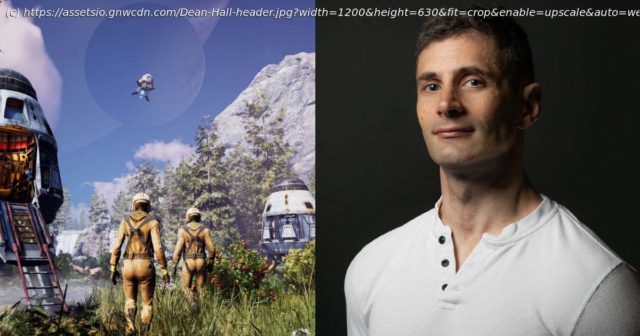Dean Hall, famous for his work on Day Z, is a man obsessed with making video games.
« There’s jobs, there’s careers and then there’s obsessions, and for me, game development is an obsession. I don’t think it’s healthy at all, but I am a brush, I must paint. So for me, I’ve reached the natural end of my arc where I’m just entirely about making video games, and I’m obsessed with wanting to make them better. »
That’s Dean Hall speaking, the New Zealander who created one of the world’s most popular survival games, DayZ. The last time I spoke to him properly was when he was about to leave DayZ. He was going to walk away from the game that made him and return to New Zealand to make a game studio of his own. He knew the news wouldn’t be welcomed openly by players. DayZ had only been out in early access for a few months when Hall announced he was going to leave. His crime: he wouldn’t be there to see development through. But galvanised by recent success, an invincible Hall didn’t mind.
He had a higher calling: to return home, throw money around, hire the right people, and make games a new way – his way. « Everything I touched would be gold and everything would be amazing », Hall tells me now, in a video call, recalling how he felt back then. He bought a Lamborghini Aventador and featured it gratuitously in videos of his studio RocketWerkz, as if to underline his success, and posted pictures of it, and of himself looking ripped, across social media, like a lifestyle influencer would. The image he projected was one of absolute confidence. This plan of his would absolutely work. « And that’s not what happened », he says. Today 11 years later, and one studio reboot – and some very near studio closures later – things have certainly changed.
At the heart of it all is Icarus, the co-op survival crafting game which prompted this interview and which, as of last night, we know will be coming to consoles – PlayStation 5 and Xbox Series S/X – early next year. But that game’s been on a journey. It’s been around since 2021, and it was supposed to be Hall’s big return to the survival genre after DayZ. RocketWerkz had released other games before it, such as space station builder Stationeers and virtual reality strategy game Out of Ammo, but these were only precursors to what Hall really wanted to make – a big survival game. So, he restructured RocketWerkz to make it. He closed the original experimental office in sleepy Dunedin and relocated operations to the big city of Auckland and focused everything on making one, bigger, game.
Icarus isn’t a revolutionary idea. It’s a co-operative multiplayer game for as many as eight people, which involves landing on a planet a bit like Earth, but very much not Earth, and surviving there. Collect resources, build a base, craft equipment, stay alive – we’ve been here before many times. But this being Dean Hall – someone who nearly died in the army while on a survival exercise – means the game had to have deep and detailed survival systems, which marked it out as different, and complex building and upgrading systems, something else he tends to favour. Built in Unreal Engine 4, Icarus was handsome to look at, and after several successful beta weekends, the game launched in early access in December 2021 to a fair amount of excitement (~50,000 concurrent players). And then everything started to go wrong.
Performance issues, design issues, bugs – the game suffered a cocktail of problems. There was one particular bug that prevented you from playing in a language other than English, which understandably provoked a fierce reaction from people who didn’t want to play in English. « We were getting destroyed », Hall says. And there was no other option than for RocketWerkz to fix it; with Icarus, everything was on the line. Hall’s funds, which had once felt inexhaustible, were rapidly depleting; Hall had originally sought a publisher for Icarus to no avail – some companies came close but were the wrong fit. And he’d sold as many shares in the company – with a chunk going to Tencent – as he was comfortable parting with. RocketWerkz was on the precipice.
Moreover, as far as the people playing Icarus were concerned, Hall was once again the bad guy. The taint of a rocky launch, which had followed him around since DayZ, and onto Stationeers, had now been reapplied by Icarus. Backlash was vociferous. But Hall was no stranger to it by now. « I had reached my own peace with it », he says.
« I think about it like this: my worst day all through then to now was nothing compared to my worst days in the army. » If you don’t know, those days involved near-starvation and bodily shut-down, and Hall needing surgery to sort him out. It was grim. « So I can always look back on that », he says. « I mean boohoo, I made this money and I’m running a video game studio and if I sneeze, a journalist is going to write an article about it.






